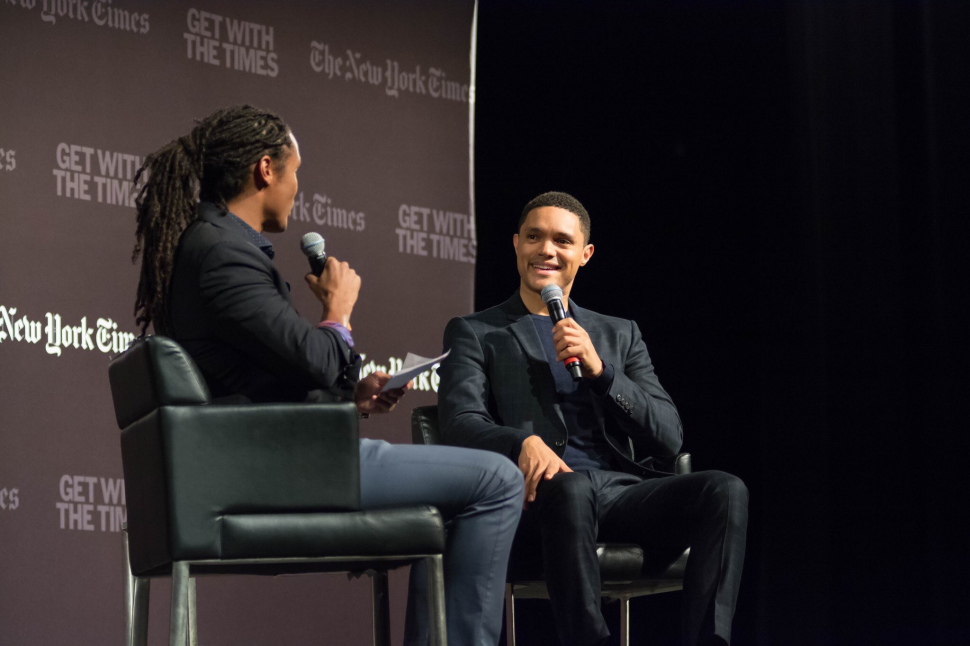EVANSTON - Trevor Noah, host of “The Daily Show,” urged journalism students from the Medill School and around the country this week to “pursue the facts” in an era when mainstream news outlets are being accused of promoting “fake news.”
“Facts are real,” the comedian and author told an audience of about 1,000 students packed into Cahn Auditorium on Northwestern University’s Evanston campus Sunday (Oct. 15) night. “I need to be informed. I need good journalism for my show. That’s the joy of living in a country with a free press. That’s the great thing about America.”
Noah spoke on the subject of “Race and Identity in America Now” as part of a “Get With The Times” event co-hosted by The New York Times and the Medill School of Journalism, Media, Integrated Marketing Communications. It was televised in front of an audience and webcast live to reach college campuses around country. He was interviewed for an hour by Times reporter and Medill alumnus John Eligon, a national correspondent based in Kansas City who covers race issues.
Asked about growing up under apartheid in his native South Africa, Noah described the complex policy of state-sanctioned economic and political discrimination against non-whites. But he also said he was attracted to the black American culture he could see in U.S. movies, television and music.
Only later did he realize how America’s legacy of slavery and racism had deprived African-Americans of their homeland, their African heritage and their freedoms, an enduring wound that made them look longingly back at Africa as a place they never got to know as Noah did.
“You don’t realize how many black Americans feel they have been robbed of their story and culture and home,” he said, talking about how he uses comedy to bring social issues into better perspective. “You understand that beneath that funny approach, you see the pain of that. They had their story robbed from them through slavery.”
Noah was asked by Eligon whether President Donald Trump’s behavior had somehow encouraged or unmasked the racism that still exists in the United States, and Noah replied that America can still be defined by people who see racism and bigotry yet still decide not to choose that path.
“My mother always said you can’t control what happens to us, but you can control how you react and respond to it,” he noted, calling himself an eternal optimist.
“The biggest thing we must all do is talk about it,” Noah observed. “People must have that conversation with friends and family. I do believe as people we can move that conversation forward, and we must have it.
“There is a shift slowly, and people have to move forward as a society,” he added, “and we have made progress. But there is a lot more to do.”
Noah took questions presented in videos from college students around the country. He noted that young people on college campuses and across America will be the ones to make more progress on issues of race and identity and other issues.
“Younger people are always the ones who push progress and progressive ideas,” he noted. “I feel that every new generation recalibrates what people can say and do.”


